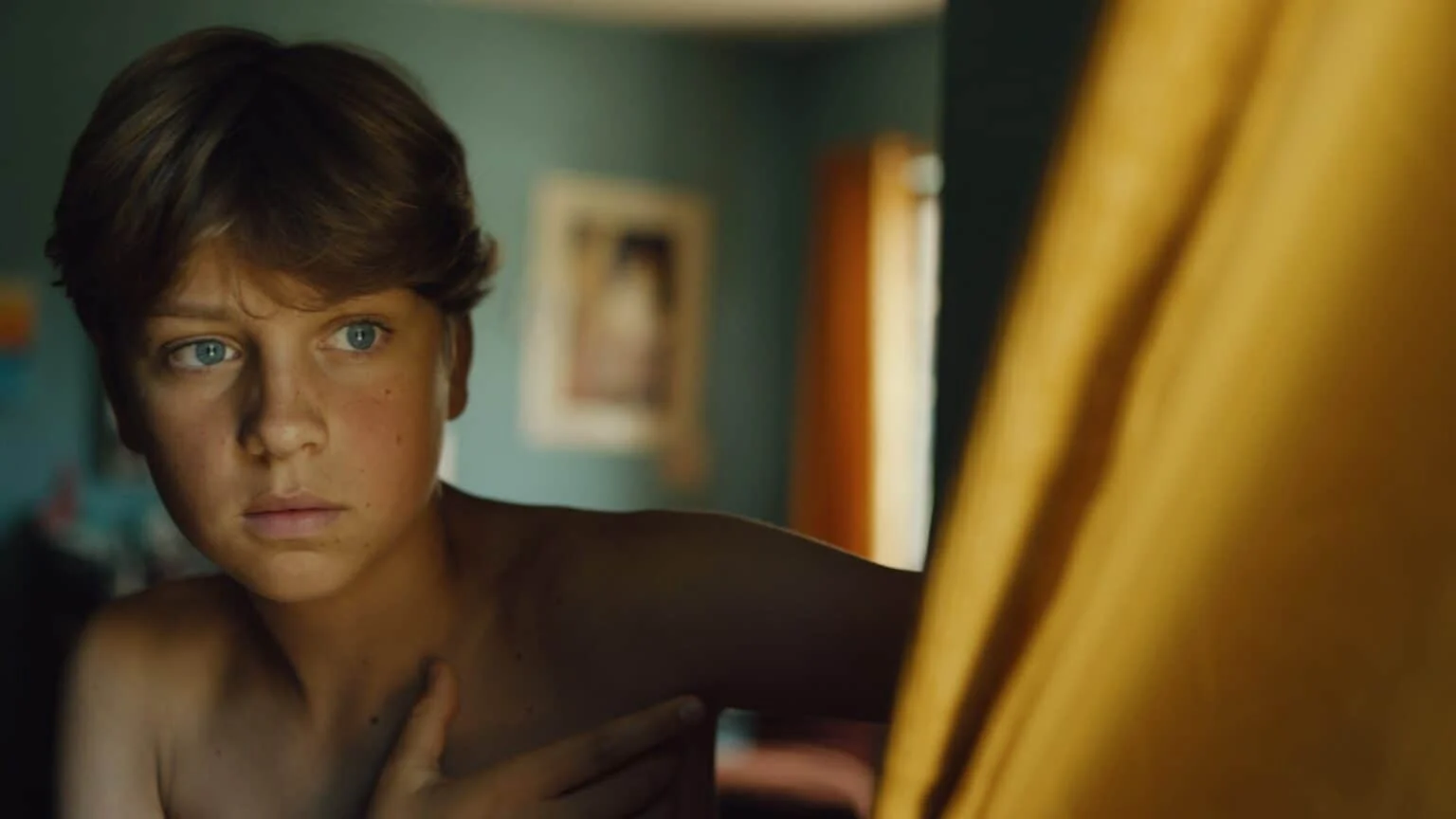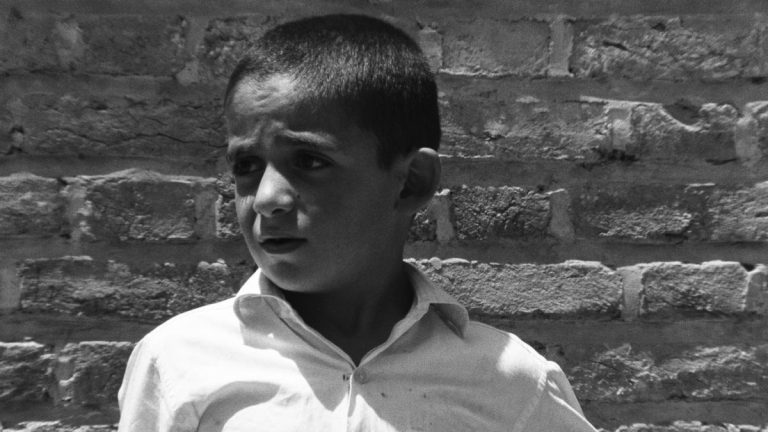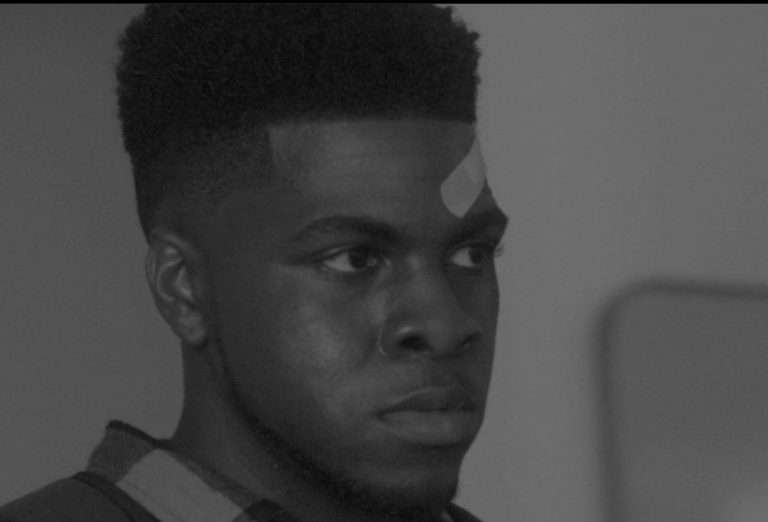Anthony Schatteman’s “Young Hearts” is deeply attuned to internal, emotional landscapes. There aren’t big, flashy conflicts in the narrative. Instead, the teenage protagonist, Elias (Lou Goossens), has to wrestle with his own conditioning, biases, and perceptions he has internalized from those around him. The idea of blossoming first love permeates his reality. But it is mostly seen through a prism of heterosexuality.
He is swept by an immensity of feelings towards the new neighbor’s son, Alexander (Marius de Saeger), but balks at a public embrace. He’s repressed, fearful, and vulnerable. The film is geared toward his inner tussle, the reckoning with what he sees as shame and rejection smearing queerness. It’s that old familiar tale of finding peace and inching towards acceptance with oneself. Desires that seem forbidden and transgressive have to be re-looked at and understood with searching compassion. There can be no room for clear-cut binaries.
Elias has all these ideas about who he should be and how he should desire that he must shed first. If not shed, he must open himself up and see other vibrant possibilities of love and romance. Alexander is confident and easy in his sexuality. He doesn’t hide it. Yes, there are a few odd jeers at school but he also gives it back when provoked. Elias, on the other hand, is too caught up in what others will say. That they will think of him as gay is initially something he cannot allow at all. When Alexander tells him his previous relationship was with a boy, Elias is taken aback.
The film builds their growing intimacy with subtle tenderness. Their bonding doesn’t take much time to grow into something special and thrive in a private space tucked away from the scrutiny and backlash of jocks at school. Elias’ gaze keeps returning to Alexander. As much as he wants, he can’t really tear his eyes away. There’s such a depth of hunger for affection and swell of longing on Goossens’ visage just watching him makes for a deeply moving experience. His performance makes you want to reach out, give him a hug, and reassure him that it’s okay to feel what he is feeling; that they too are legitimate and deserve equal kindness just as any straight relationship.

Elias’ parents aren’t supremely antagonistic or curtail his movements that don’t tally with conventional relationships and ways of being. He feels that he will be severely judged and penalized for his surge of attraction towards Alexander. He tries to deny it to himself as much as he can, till it bursts out in intense pockets of seeking intimacy and pleasure. Everyone believes him to be with Valerie. To recede from this projection and walk towards a relationship with Alexander, he has to get over his constricted notions. There is a tonne of assumptions he has to internally battle and enter into an equation of calm, untroubled acceptance.
“Young Hearts” is posited at the point when innocence shifts into knowledge of perceptions and conditioning. It’s a journey the boy must make in looking inwards, challenging his received/internalized belief systems. Elias wants to be open and freely understood but he is held back. He’s not sure if his desires would be accepted. He’s haunted by what he believes as the proscribed. The film doesn’t do anything extravagantly stylized or execute narrative experimentalism. It’s quiet, simple, and direct in its emotional appeal, gathering power through a flurry of unarticulated glances heavy with emotion and sensuousness.
It is in subdued, precise consonance with its strengths; the directions the screenplay takes aren’t imposingly dramatic, but rather a soft handling of inner crises. Elias must be candid and come to terms with the force of his subterranean, strong urges. Probably the sweetest touch to the film is his grandfather aiding him in his coming out, gently insisting he hold onto his love for Alexander. “Young Hearts” gradually charms its way into your heart. Thankfully the closing note doesn’t drown in pathos but a positive reaffirmation of the romance.
There’s a flush of bright possibilities, spaces of non-judgemental friendship opening up, a world less harsh and more hopeful. It’s wrenching to see Elias wrestle with himself and deeply comforting when he finally reaches a place of belonging within himself. Suddenly you feel everything in the world is alright. “Young Hearts” achieves this trajectory without a whiff of compromise or hurry.




![Léon The Professional [1994]: A Symphony of Violence & Vengeance](https://79468c92.delivery.rocketcdn.me/wp-content/uploads/2018/03/léon-768x480.jpg)
![Tope [2017]: A Lost Master](https://79468c92.delivery.rocketcdn.me/wp-content/uploads/2017/06/The-Bait-768x433.jpg)
![Joint [2021] NYAFF Review: A Generic Albeit Fresh Spin on the Yakuza narrative](https://79468c92.delivery.rocketcdn.me/wp-content/uploads/2021/08/joint_main-1.png)

